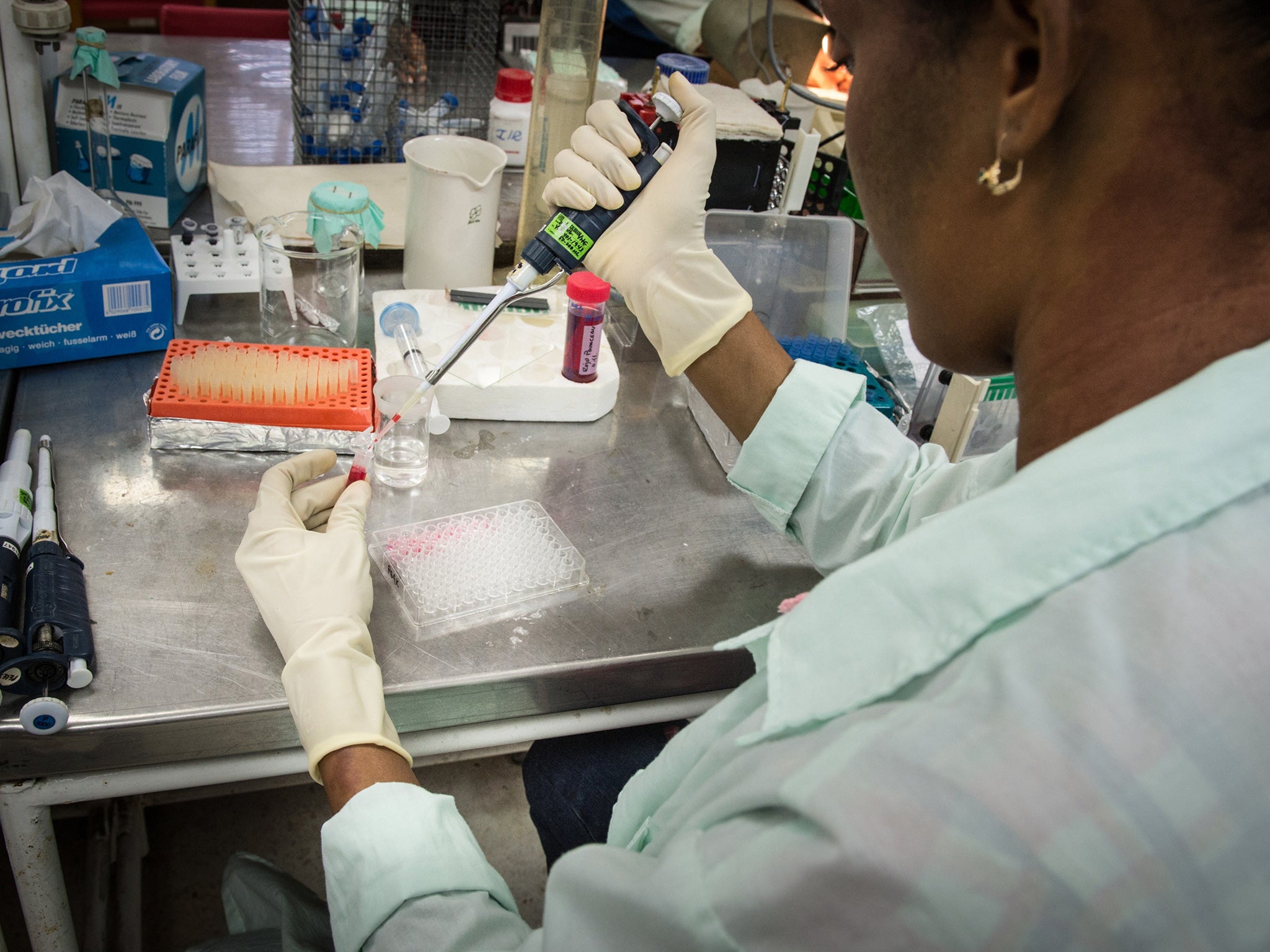Cure for cancer might accidentally have been found, and it could be malaria
By attaching malaria proteins to cancer cells, tumours could be burrowed into and then destroyed — and it seems to be effective on 90 per cent of types of cancers

Your support helps us to tell the story
From reproductive rights to climate change to Big Tech, The Independent is on the ground when the story is developing. Whether it's investigating the financials of Elon Musk's pro-Trump PAC or producing our latest documentary, 'The A Word', which shines a light on the American women fighting for reproductive rights, we know how important it is to parse out the facts from the messaging.
At such a critical moment in US history, we need reporters on the ground. Your donation allows us to keep sending journalists to speak to both sides of the story.
The Independent is trusted by Americans across the entire political spectrum. And unlike many other quality news outlets, we choose not to lock Americans out of our reporting and analysis with paywalls. We believe quality journalism should be available to everyone, paid for by those who can afford it.
Your support makes all the difference.Scientists might have accidentally made a huge step forward in the search for a cure for cancer — discovering unexpectedly that a malaria protein could be an effective weapon against the disease.
Danish researchers were hunting for a way of protecting pregnant women from malaria, which can cause huge problems because it attacks the placenta. But they found at the same time that armed malaria proteins can attack cancer, too — an approach which could be a step towards curing the disease.
Scientists have combined the bit of protein that the malaria vaccine uses to bury into cells it with a toxin — that can then bury into cancer cells and release the toxin itself, killing them off.
The scientists have found that in both cases the malaria protein attaches itself to the same carbohydrate. It is the similarities between those two things that the cure could exploit.
The carbohydrate ensures that the placenta grows quickly. But the team behind the new findings have detailed how it serves the same function in tumours — and the malaria parasite attaches itself to the cancerous cells in the same way, meaning that it can kill them off.
Scientists said that they had been searching for a long time for a way to exploit the similarities between the placenta and the tumour.
"For decades, scientists have been searching for similarities between the growth of a placenta and a tumor,” said Ali Salanti from University of Copenhagen. “The placenta is an organ, which within a few months grows from only few cells into an organ weighing approx. two pounds, and it provides the embryo with oxygen and nourishment in a relatively foreign environment. In a manner of speaking, tumors do much the same, they grow aggressively in a relatively foreign environment.”
The process has already been tested in cells and on mice with cancer, with the findings described in a new article for the journal Cancer Cell. Scientists hope that they can begin testing the discovery on humans in the next four years.
The biggest questions are whether it'll work in the human body, and if the human body can tolerate the doses needed without developing side effects,” said Salanti. “But we're optimistic because the protein appears to only attach itself to a carbohydrate that is only found in the placenta and in cancer tumors in humans.”
In the tests on mice, the animals were implanted with three different types of human cancers. It reduced non-Hodgkin's lymphoma tumours to about a quarter of their size, got rid of prostate cancer entirely in two of six mice and kept alive five out of six mice that had metastatic bone cancer compared to a control group all of which died.
"We have separated the malaria protein, which attaches itself to the carbohydrate and then added a toxin," said Mads Daugaard, a cancer researcher at Canada's University of British Columbia and one of the scientists that worked on the research. "By conducting tests on mice, we have been able to show that the combination of protein and toxin kill the cancer cells."
Join our commenting forum
Join thought-provoking conversations, follow other Independent readers and see their replies
Comments